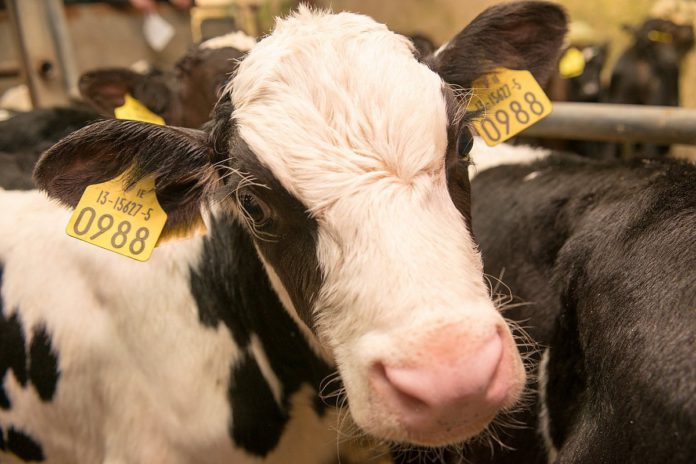In this article on www.thatsfarming.com, Richard Gibson CAFRE, provides advice in relation to cow care prior to calving and how you as a farmer can provide a calf with the best start in life.
In the first part of his article, he looked at some of the key factors required for a smooth calving period and provided us with a calving equipment list.
Cow care prior to calving
In the final three weeks of the dry period, nutrition and feed space are key.
Ideally, cows should be housed, and dry cow minerals fed for the six weeks pre-calving.
Also, consider vaccines as part of a scour prevention plan. This can be done in the weeks pre-calving and will boost the antibodies against scour which will be passed to the calf in the colostrum afterwards.
Regardless of the system, it is necessary to have adequate feed space for pre-calvers, at least 75 cm per cow and 24 hours/day stress-free access to fresh, palatable feed.
Constant availability of fresh, clean water, with adequate water drinker space per cow or one fast drinker per 10 cows is also needed.
Overcrowding of the pre-calving group and moving cows close to calving should be avoided wherever possible.
Moving causes stress, delays calving and reduces feed intakes even further. If cows are moved between groups, move in pairs where possible.
Cows housed in cubicles need large and comfortable beds (at least 1.3m wide and 1.8m long) with at least 75cm of unobstructed room.
Dry cow cubicles should receive similar attention to detail in relation to hygiene as those for the milking herd.
Providing the calf with a good start
Antibodies cannot pass from the cow to the calf during pregnancy, therefore, calves are born without any immunity.
Calves should be fed 2-3 litres of colostrum within two hours of birth to maximise absorption of antibodies and increase immunity of the calf to help fight potential infectious bacteria and viruses.
Ideally, colostrum from the calf’s mother should be fed, or alternatively, consider freezing colostrum.
Surplus colostrum can be stored for up to one year in a freezer in milk containers or freezer bags at -18°C to -25°C without losing quality.
When defrosting, use warm water less than 50°C to thaw slowly as faster thawing at higher temperature or using the microwave will destroy the antibodies in the colostrum.
See more farming news on www.thatsfarming.com





